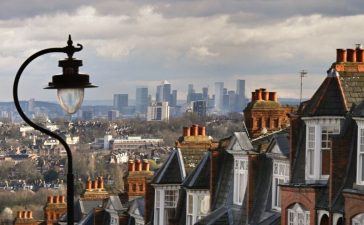I put solar panels on my house a few years ago, which kept my energy bills low. Unfortunately, my neighbour recently completed a big extension, blocking the light and resulting in my solar panels becoming redundant. My bills have increased significantly. My neighbour was made aware of this potential issue but showed no interest before or after the building work. Is there anything I can do?

Priya Sejpal, property litigation partner in the London office of JMW Solicitors, says neighbour disputes can be extremely difficult to resolve. The law is poorly set out and mostly made by judges in individual cases. It therefore often lags far behind the reality of day-to-day life for many people.
A right of light is an easement that gives a landowner the right to receive light through an opening in a building.
Ordinarily, if an adjoining landowner interferes with a right to light, the person affected will be able to make a right to light claim in which they can seek an order from the court to stop interference with their light and, potentially, damages. However, the right to light only applies to openings in buildings such as windows and it is not certain that solar panels would fall within the scope of right-to-light protection.
Even if solar panels were found to be worthy of protection, this is normally quite minimal and only allows for sufficient light for the ordinary use of a room. It certainly does not allow for the direct sunlight that a solar panel needs to operate at its maximum efficiency.
However, there is hope. A challenge to a planning application was recently upheld because the proposed development would have reduced the light available to the solar panels on next-door land. This was a surprise, as rights to light are not usually considered in planning applications, so this decision showed a commitment to climate change policy as an important planning consideration.
In addition, there is a very old case in which a court held that a right to light could be for more light than just enough to use a room and held that a greenhouse should have enough light with which to grow plants. This ruling could potentially suggest that solar panels should have enough light to generate electricity effectively.
However, as you have not had the panels for 20 years you cannot acquire a right by prescription. Since it is not mentioned, you presumably also had no agreement for a right to light, so cannot rely on that.
You could report this issue to your local council to establish if the extension has been built to proper planning requirements. If the required planning permission was not secured, an objection could be lodged against any attempt to seek retrospective planning permission.
In the longer term, the Law Commission has proposed that the law should be changed to provide clearer and stronger protection for rights to light. Such a change could and should include protection for solar panel use.
Should I pay to recover my stolen cryptocurrency?
Some of my cryptocurrency has been stolen. I have been told that, for a fee, a company will help trace my coins via the blockchain. Is it worth spending money on this exercise? Will it actually help me recover my coins?

Amy Harvey, partner in the London office of law firm Ontier, says you are right to make the distinction between tracing and recovery. Tracing coins in and of itself will not guarantee recovery. However, to have any chance of recovering the coins, knowing where they’ve gone is essential.
Tracing stolen coins can theoretically be done by anyone who understands how the blockchain works, as all transactions are recorded on the blockchain, an immutable public ledger.
However, cryptocurrency thefts are rarely simple — criminals will often split funds or transfer them across multiple tokens or chains. This is where bitcoin analytics comes in. Using specialised software, not only can analysts trace complex transactions, they can also identify patterns of movement between addresses and whether those addresses are known to be linked to a particular exchange.
The analytics report will give you a potential road map to recovery. If the coins haven’t been dispersed to too many addresses, or if those addresses are linked to each other or to a reputable exchange, recovery may be feasible.
Assuming there is a link to England and Wales, your next step would be to commence proceedings in the English court to recover your stolen coins and the proceeds of those coins (whether cash or other assets). While you could also inform the police or Action Fraud, sadly they are unlikely to take significant, or any, action.
English courts have wide-ranging powers to aid fraud victims, including the power to make orders against third parties (such as exchanges or banks) to provide documents and information which could assist with your claim against the wrongdoers and to order worldwide freezing injunctions (even where the wrongdoers are still unknown).
Recovery proceedings need to be undertaken with eyes wide open. The process will not be cheap and there is no guarantee of success. Anyone who tells you otherwise should be treated with suspicion. However, there are powerful legal tools at your disposal if you are willing to make the investment.
Lastly, if successful in your claim, you will still need to enforce your judgment. You may need to follow your assets to other jurisdictions at further cost. Enforcement is easier in some jurisdictions than others and will also depend on which third parties are involved. For example, increasingly, reputable exchanges are demonstrating that they are willing to assist with the recovery of stolen assets and will voluntarily comply with English court orders.
In summary, whether any recovery action is “worth” it has to be analysed on the basis of the size of the original investment lost and working on a step-by-step basis. Often, the cost-reward equation won’t be fully apparent until the work is done.
The opinions in this column are intended for general information purposes only and should not be used as a substitute for professional advice. The Financial Times Ltd and the authors are not responsible for any direct or indirect result arising from any reliance placed on replies, including any loss, and exclude liability to the full extent.
Do you have a financial dilemma that you’d like FT Money’s team of professional experts to look into? Email your problem in confidence to yourquestions@ft.com.
Our next question
My husband and I have decided to divorce. Although we both work and have well-paid jobs we will still need to have enough money for two properties — one for each of us to live in after we separate. How can we save money on legal fees?











